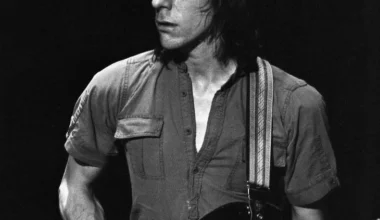Ritchie Blackmore, the hard-edged guitarist behind Deep Purple’s sound, is not one to give out compliments lightly. Known for his intense, no-nonsense attitude, Blackmore admits that his unapproachable manner even caught him off guard around legends like Bob Dylan and Eric Clapton. So, when he does praise someone, it carries significant weight.
With Deep Purple selling over 100 million records, Blackmore helped define the heavy, brooding sound of 1970s rock, deeply shaping both prog rock and metal. Yet, as music shifted with the 1980s and MTV ushered in a flashy, fast-playing style, Blackmore distanced himself from the trend.
“The latest trend seems to be how fast you can get from A to B without actually playing anything,” he remarked to Metal Hammer. He felt speed alone couldn’t create true artistry, saying, “Okay, you can hear that the guy has practised, but what’s he feeling?”
Despite dismissing many contemporary players, Blackmore singled out one guitarist as truly exceptional: Steve Vai.
“The guy that sticks out at the moment is Steve Vai. He’s really shit-hot,” Blackmore said, praising Vai’s technical skills, versatility, and musicality.
“Not only can he play every style there is, but he can also write and transpose the whole thing as well.”
Blackmore’s admiration highlights Vai’s ability to balance speed with musical depth, setting him apart in an era of showy guitar antics.
Vai’s journey to greatness began under the mentorship of Frank Zappa, who recognized Vai’s talent when he was still a young, aspiring guitarist. In an audition that would test anyone’s limits, Zappa pushed Vai to play complex riffs, switch time signatures, and tackle impossible note combinations.
When Vai admitted he couldn’t meet Zappa’s final, physically unplayable challenge, Zappa joked, “Well, I hear Linda Ronstadt is looking for a guitar player.” But as Vai left, thinking he had failed, Zappa revealed it was all a test: he got the job.
Unlike many of his flashier peers, Vai’s humility and dedication to his instrument may be the qualities Blackmore admires most. Vai’s artistry doesn’t rely on speed or showmanship; instead, he brings a rare balance of skill and depth to his craft.
It’s this combination, Blackmore seems to imply, that separates genuine talent from those merely seeking the spotlight. For Blackmore, the true greats don’t just make it to MTV—they elevate their art in a way that transcends the stage







